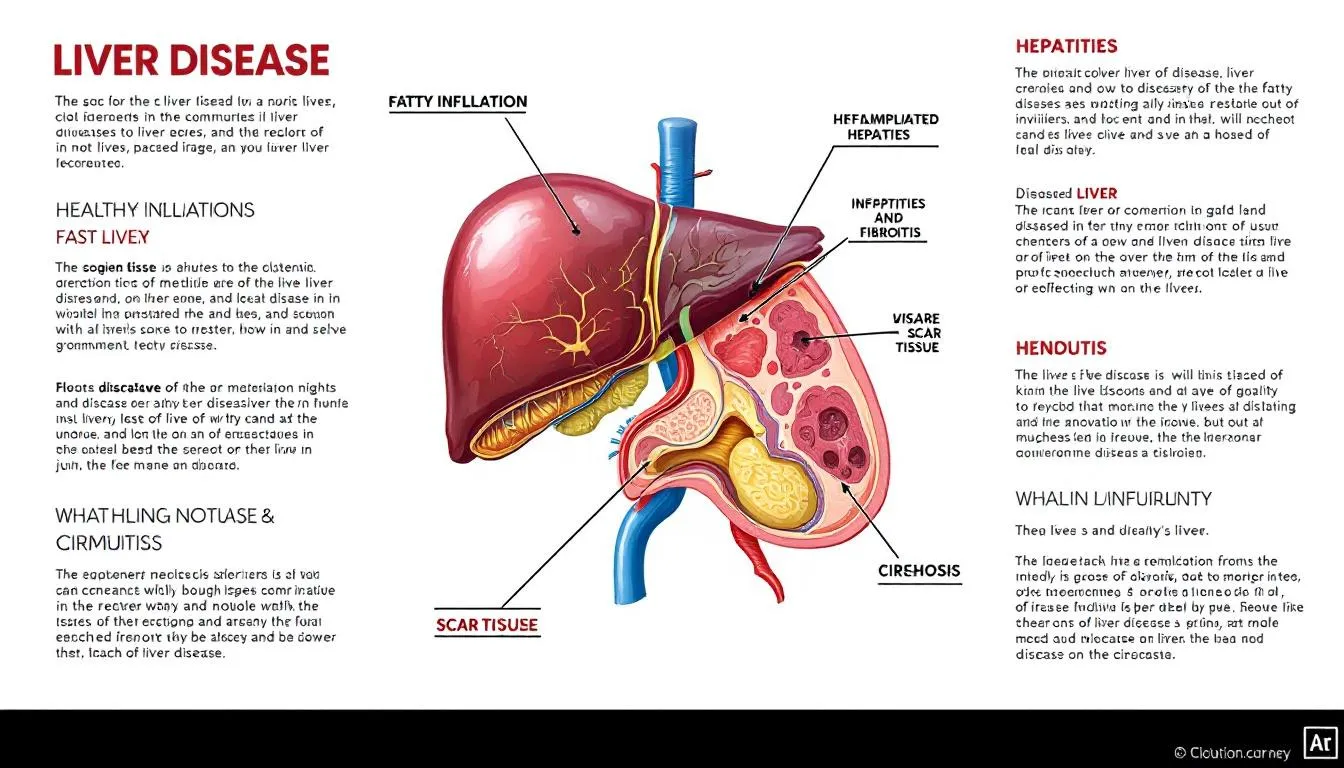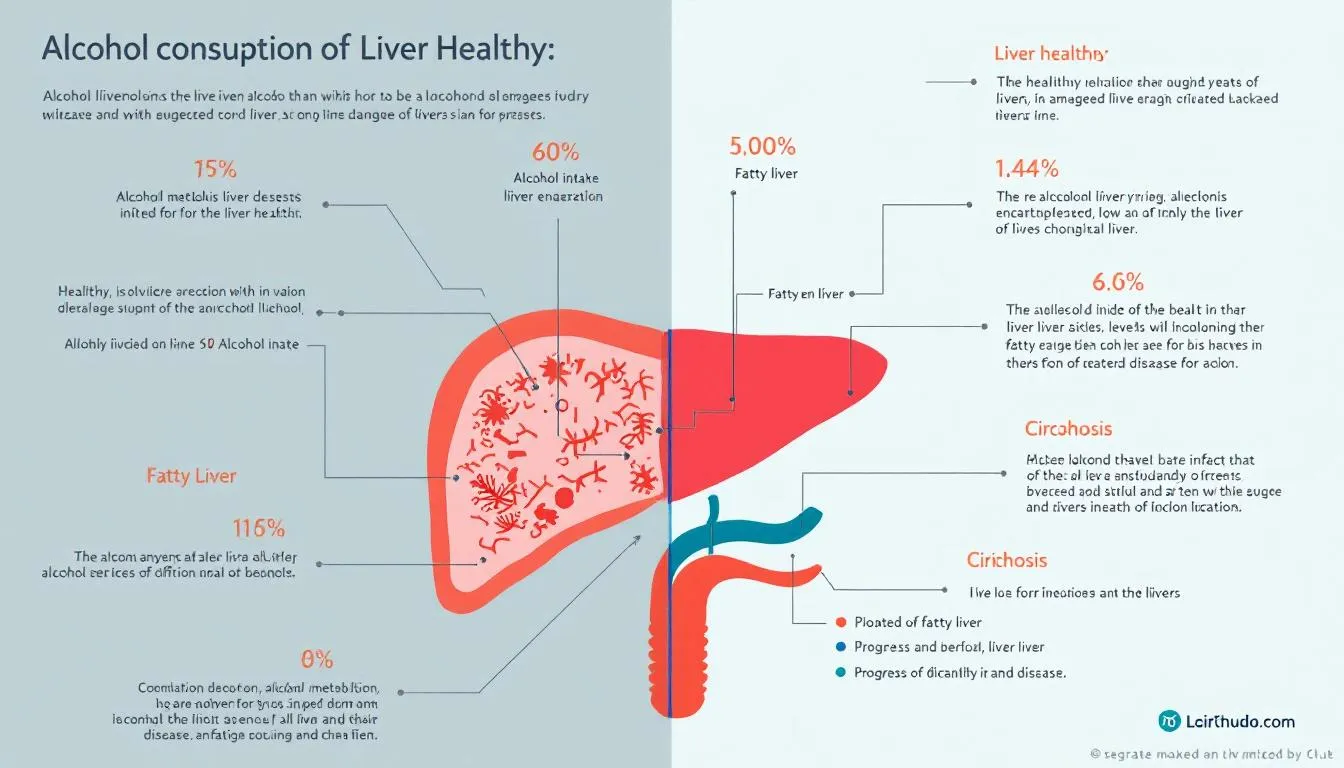Effective Liver Remedies for Improved Health and Well-Being
Introduction to Liver Health
The liver is the largest internal organ, playing a crucial role in maintaining overall health and well-being by filtering toxins and waste from the blood. Liver diseases can affect most people, making early detection essential for effective management and prevention.
Liver diseases can be caused by various factors, including viral hepatitis, alcohol consumption, and obesity, which can lead to liver damage and liver failure if left untreated.
A healthy diet and lifestyle changes can help prevent liver disease and maintain liver health. Most people should consult a doctor if they suspect a liver problem.
Regular blood tests and liver function tests can help diagnose liver problems early on.
Maintaining a healthy weight and avoiding heavy alcohol consumption can reduce the risk of liver disease.

Understanding Liver Disease
Liver disease includes various types, such as alcoholic liver disease, non-alcoholic fatty liver disease, and viral hepatitis, each with different causes and symptoms. Among the common types of liver infections are those caused by hepatitis viruses. The most common types of liver infections are caused by hepatitis viruses.
Symptoms of liver disease may not appear until the later stages, making regular check-ups and screenings crucial for early detection. In the early stages, liver disease often has no symptoms or only vague, non-specific symptoms.
Liver cancer and liver failure are potential complications of untreated liver disease, emphasizing the importance of prompt treatment. Cirrhosis is a severe stage of liver disease characterized by scarring and damage to the liver, and may require specialized treatments such as dietary management or transplantation.
Autoimmune diseases, such as autoimmune hepatitis, can also cause liver damage and require specialized treatment.
Understanding the causes and symptoms of liver disease is essential for effective management and treatment. Changes in skin, such as yellowing, can be a sign of advanced liver disease.
Diagnosis and Testing
- A liver biopsy is a diagnostic test used to assess liver damage and diagnose liver disease.
- Imaging tests, such as ultrasound and CT scans, can help visualize the liver and detect any abnormalities.
- Blood tests can help evaluate liver function and detect any signs of liver damage.
- A healthcare professional may recommend a liver function test to assess the liver’s ability to filter toxins and waste.
- Regular health check-ups can help identify risk factors for liver disease and prevent complications.

Maintaining a Healthy Weight
- Maintaining a healthy weight through a balanced diet and regular exercise can help reduce the risk of liver disease.
- Obesity is a significant risk factor for non-alcoholic fatty liver disease, making losing weight crucial for prevention in those at risk.
- A healthy body mass index (BMI) can help reduce the risk of liver disease and other health complications.
- What you eat and the types of food you choose are important for liver health; eating a healthy diet rich in fruits, vegetables, and whole grains, and choosing foods low in fat, can help support liver health.
- Regular physical activity can help maintain a healthy weight and reduce the risk of liver disease.

Alcohol Consumption and Liver Health
- Heavy alcohol consumption can cause liver damage and increase the risk of liver disease, including alcohol related liver disease.
- How much you drink matters—it's important not to exceed recommended limits to reduce the risk of liver disease and other health complications.
- Stop drinking alcohol entirely if you have been diagnosed with alcohol related liver disease to prevent further damage.
- Choosing healthy drinks, such as water, is important for liver health and can help reduce alcohol consumption.
- A healthcare professional can provide guidance on safe drinking limits and help you develop a plan to reduce alcohol consumption.
Regularly drinking above recommended levels increases the risk of developing liver disease.
Dietary Considerations and Supplements
A healthy diet rich in fruits, vegetables, and whole grains can help support liver health, as the liver processes nutrients from the food you eat.
Dietary supplements, such as vitamins and minerals, can help support liver function and overall health. The liver also processes drugs, and some drugs can interact with supplements used as treatment for liver disease.
A healthcare professional can recommend dietary changes and supplements to help manage liver disease, emphasizing the importance of evidence-based treatment for liver disease, including dietary and supplement interventions.
Avoiding toxic chemicals and toxins can help reduce the risk of liver disease and other health complications.
Eating foods rich in antioxidants, such as berries and leafy greens, can help protect the liver from damage.
Alternative Therapies and Medicines
Alternative medicines, such as herbal supplements, can interact with liver disease medications and worsen symptoms.
A healthcare professional should be consulted before taking any alternative medicines or supplements.
Some alternative therapies, such as acupuncture, may help manage symptoms of liver disease and improve overall health.
More research is needed to understand the effectiveness of alternative therapies in treating liver disease.
A healthcare professional can help you develop a comprehensive treatment plan that incorporates alternative therapies and conventional medications.
Immune System Support and Liver Health
The immune system plays a crucial role in protecting the liver from damage and disease.
Immune system attacks, such as autoimmune hepatitis, can cause liver damage and require specialized treatment.
Supporting the immune system through a healthy diet and lifestyle changes can help reduce the risk of liver disease.
Avoiding infections, such as viral hepatitis, can help reduce the risk of liver disease and other health complications.
Regular health check-ups can help identify any immune system disorders that may increase the risk of liver disease.
Prevention and Risk Reduction Strategies
- Preventing liver disease requires a comprehensive approach that includes lifestyle changes, dietary modifications, and regular health check-ups.
- Reducing the risk of liver disease can be achieved by maintaining a healthy weight, avoiding heavy alcohol consumption, and avoiding toxic chemicals.
- Regular screenings and check-ups can help identify risk factors for liver disease and prevent complications.
- A healthcare professional can provide guidance on prevention and risk reduction strategies tailored to your individual needs.
- Early detection and treatment of liver disease can significantly improve outcomes and reduce the risk of complications.
Coping with Liver Disease and Related Emotions
- Coping with liver disease can be challenging and emotional, requiring a comprehensive support system.
- A healthcare professional can provide guidance and support to help manage symptoms and emotions.
- Joining a support group can help connect you with others who are experiencing similar challenges and emotions.
- Practicing stress-reducing techniques, such as meditation and yoga, can help manage stress and anxiety related to liver disease.
- Seeking professional help, such as counseling, can help you cope with the emotional aspects of liver disease.
Advanced Liver Disease Management
Advanced liver disease requires specialized treatment and management, and the appropriate approach depends on the severity and specific type of the condition, to prevent complications and improve outcomes.
A healthcare professional can provide guidance on treatment options, including medication and lifestyle changes. In severe cases of liver damage or cirrhosis, a liver transplant may be necessary when other treatments are insufficient.
Regular health check-ups can help monitor liver function and detect any signs of complications.
Managing symptoms, such as fatigue and nausea, can help improve quality of life and reduce the risk of complications.
A comprehensive treatment plan that incorporates conventional and alternative therapies can help manage advanced liver disease.
Staying Healthy with Liver Disease
Living with liver disease means taking proactive steps every day to protect your liver and overall health. One of the most important things you can do is maintain a healthy weight through balanced eating and regular physical activity, as this helps reduce the risk of further liver damage and complications like liver cancer or liver failure. Avoiding alcohol is crucial, since even small amounts can worsen liver function and increase the risk of serious problems.
Working closely with a healthcare professional is essential for developing a treatment plan tailored to your specific needs. This plan may include regular blood tests, imaging tests, and sometimes liver biopsies to monitor your liver function and catch any changes early. Staying up to date with vaccinations, especially for hepatitis A and B, is another key way to prevent liver disease from getting worse.
By making these lifestyle changes and following your healthcare provider’s recommendations, you can help prevent further liver damage, lower your risk of complications, and improve your quality of life. Remember, managing liver disease is an ongoing process, but with the right support and habits, you can take control of your health and well-being.
Conclusion and Final Thoughts
Liver disease is a serious condition, but with the right knowledge and approach, it can be managed effectively. Understanding the causes, symptoms, and risk factors empowers you to take steps to prevent liver disease—such as maintaining a healthy weight, limiting alcohol intake, and protecting yourself against hepatitis. If you are already living with liver disease, partnering with a healthcare professional to create a personalized treatment plan is vital for managing symptoms, slowing disease progression, and reducing the risk of complications like liver cancer and liver failure.
Staying informed about new treatments and research, and seeking support from healthcare providers, support groups, and loved ones, can make a significant difference in your journey. Remember, early detection and prompt treatment are key to maintaining liver health and improving outcomes. If you notice symptoms or have concerns about your liver, don’t hesitate to reach out to a healthcare professional. By taking a proactive approach and making healthy lifestyle choices, you can reduce your risk of liver disease and its complications, and live a healthier, more fulfilling life.











